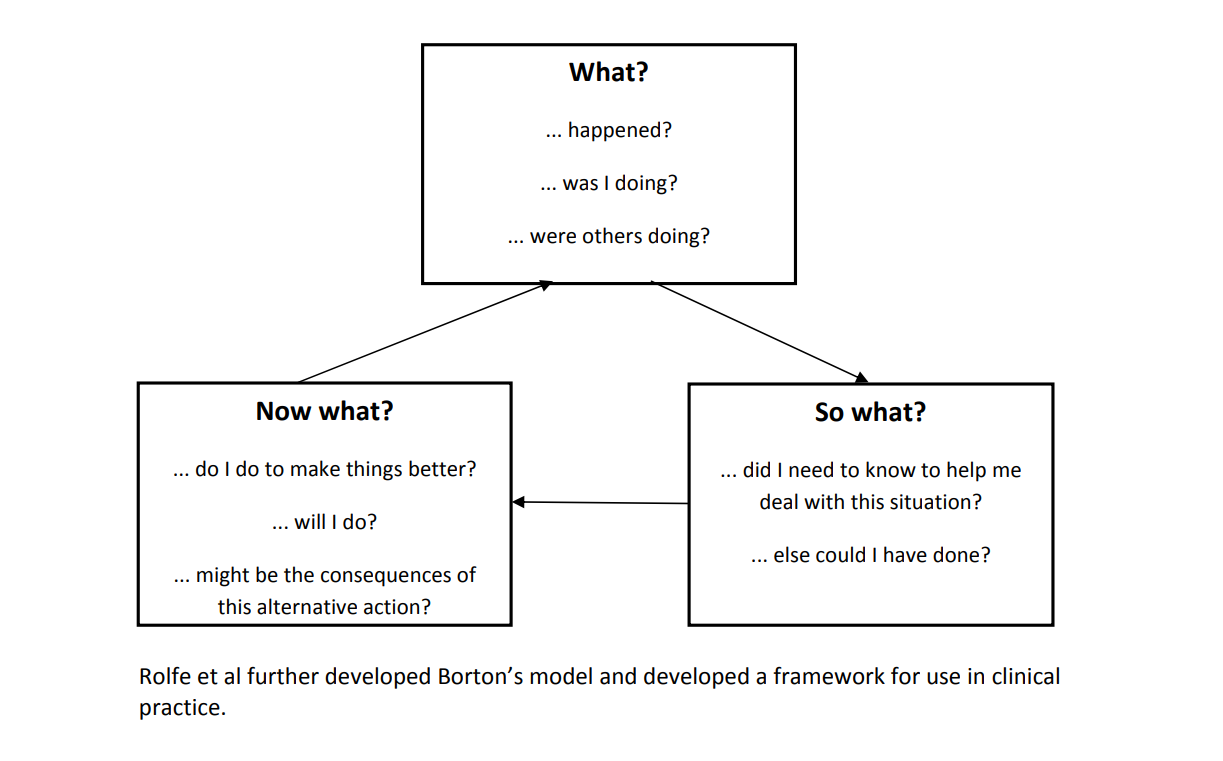This tool has been developed by the BDA as an aid to support reflection and is based on a framework developed by Rolfe et al.
Learning through reflection is more meaningful if you go through a structured process. There are a number of models which aid the reflective process. Some examples of models you might want to look at further are: Borton (1970), Gibbs (1998), Schon (1983) Rolfe et el (2001).
Borton developed a model of reflection based on three questions:

Rolfe et al further developed Borton’s model and developed a framework for use in clinical practice.
Tool for reflection
| What? | So what? | Now what? |
| Description stage of reflection | Theory and knowledge building stage of reflection | Action‐oriented stage of reflection |
|
What is the
What was my role in the situation? What was I trying to achieve? What actions did I take? What was the response of others? What were the consequences
For others what feelings did it invoke
What was good/bad about the experience? |
So what does this tell me / teach me/ imply/ mean about
So what was going through my mind as I reacted? So what did I base my actions on? So what other knowledge can I bring to the situation? So what could be done to make it better? So what is my new understanding of the situation? So what broader issues arise from the situation? |
Now what do I need to do in order to
Now what broader issues need to be considered if this action is to be successful? Now what might be the consequences?
|
Adapted from Rolfe et al (2001)

